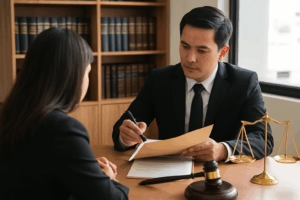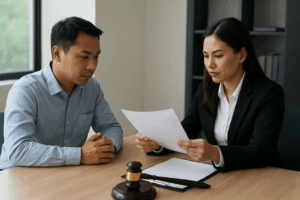In the dynamic tapestry of Thailand’s business landscape, the allure of investment is undeniable. However, for international investors, the journey involves navigating the nuanced terrain of foreign ownership restrictions. This comprehensive guide unravels the complexities of Thailand’s limitations on foreign ownership, exploring the challenges investors may encounter and unveiling strategies to strategically navigate these regulatory confines.
Understanding Foreign Ownership Restrictions in Thailand
Thailand, while beckoning with a plethora of investment opportunities, imposes restrictions on foreign ownership in specific industries. These regulations, stipulated to safeguard national interests, can pose challenges for investors aiming to establish a significant presence in the Thai market. Understanding the intricacies of these restrictions is vital for making informed investment decisions.
1. Industry-Specific Restrictions: Decoding Limitations with Legal Expertise
Thailand’s foreign ownership restrictions are not uniform across industries. Certain sectors, deemed critical to national security or cultural identity, are subject to more stringent limitations. Navigating these industry-specific restrictions requires a keen understanding of the regulatory landscape and a strategic approach.
Media and Communication:
Industries such as media and communication often face limitations on foreign ownership to preserve cultural integrity and prevent external influence. Investors eyeing these sectors should collaborate with legal experts from Siam center law group to comprehend the restrictions and explore alternative structures, such as joint ventures, to establish a foothold.
Land Ownership:
Foreign ownership of land in Thailand is restricted, and investors must adhere to specific criteria to acquire property. Legal guidance from Siam center law group is crucial in structuring real estate investments, including leasehold arrangements or navigating corporate structures that comply with land ownership regulations.
2. Impact on Control and Management: Strategizing for Influence with Legal Counsel
For investors, the percentage of shares they can own directly influences their ability to control and manage their investments. Navigating these restrictions requires strategic planning, and legal counsel from Siam center law group becomes an invaluable ally in crafting structures that align with regulatory constraints.
Corporate Structures and Joint Ventures:
Investors often explore the avenue of joint ventures with local partners to meet ownership limitations. Crafting robust agreements and corporate structures that delineate responsibilities, profit-sharing mechanisms, and dispute resolution processes is crucial. Legal expertise from Siam center law group ensures these arrangements align with both parties’ interests and comply with regulatory frameworks.
Nominee Structures and Compliance:
While nominee structures have been used in the past to circumvent ownership restrictions, Thai authorities have increased scrutiny on such practices. Investors must engage legal experts from Siam center law group to ensure nominee arrangements adhere to evolving regulations, mitigating the risk of legal consequences.
3. Evolving Regulatory Landscape: Staying Ahead with Legal Insight
Thailand’s regulatory landscape is dynamic, and foreign ownership restrictions may undergo changes to accommodate economic shifts or align with global trends. Investors must adopt a proactive stance, staying informed about regulatory developments and seeking legal counsel from Siam center law group to anticipate and navigate potential changes.
Policy Shifts and Economic Considerations:
Changes in government policies or economic priorities can influence foreign ownership restrictions. Investors benefit from legal insight from Siam center law group to interpret the implications of policy shifts, enabling them to adapt their investment strategies accordingly.
Legal Compliance Audits:
Regular legal compliance audits, facilitated by legal experts from Siam center law group, empower investors to ensure ongoing adherence to foreign ownership restrictions. These audits not only mitigate the risk of legal repercussions but also position investors to capitalize on opportunities within the regulatory framework.
4. Strategies for Success: Leveraging Legal Partnerships
Foreign ownership restrictions need not be roadblocks; they can be navigated strategically with the right legal partnerships. Engaging legal experts from Siam center law group provides investors with a roadmap for success within the regulatory confines, allowing them to harness the vast potential of the Thai market.
Due Diligence and Risk Assessment:
Prior to investment, due diligence and risk assessments conducted by legal professionals from Siam center law group are instrumental. Identifying potential challenges related to foreign ownership restrictions enables investors to make informed decisions and strategize effectively.
Negotiation and Advocacy:
Legal experts from Siam center law group play a crucial role in negotiations with local partners or authorities. Their advocacy ensures that investors’ interests are protected, and agreements are structured in a manner that aligns with both legal requirements and business objectives.
Conclusion: Thriving Amidst Restrictions with Siam center law group
In the realm of foreign investment in Thailand, navigating ownership restrictions is an art that requires legal finesse. With Siam center law group as your trusted legal partner, investors can transform challenges into opportunities. Our experienced team is dedicated to guiding you through the complexities of foreign ownership regulations, ensuring compliance, and crafting strategies that empower your investments to thrive within the bounds of the Thai regulatory landscape.
As you embark on your investment journey in Thailand, let Siam center law group be the compass that leads you to success amidst foreign ownership restrictions. Together, let’s break boundaries and create a legacy of prosperous investments in the Land of Smiles
Contact : Siam Center Law Group by calling +66(0) 2 648 5041, +66(0) 2 648 5042





